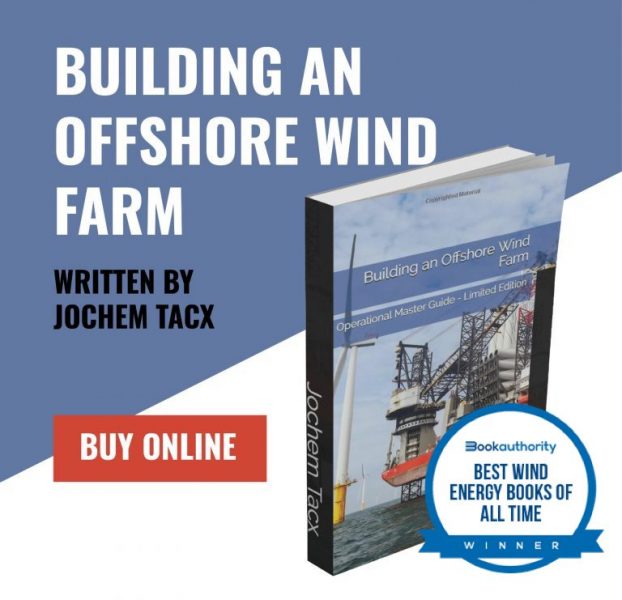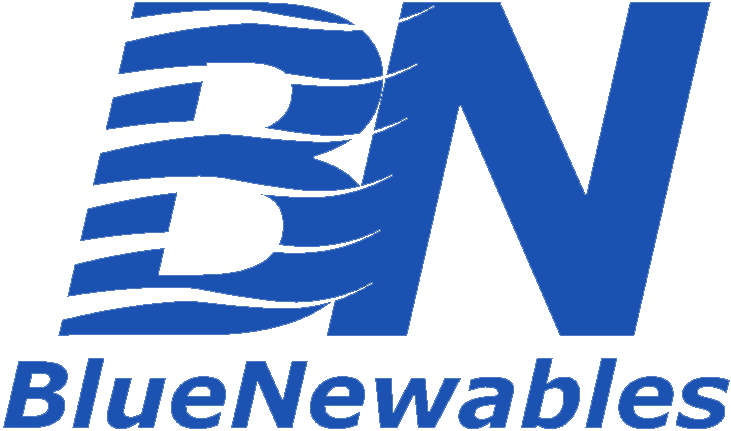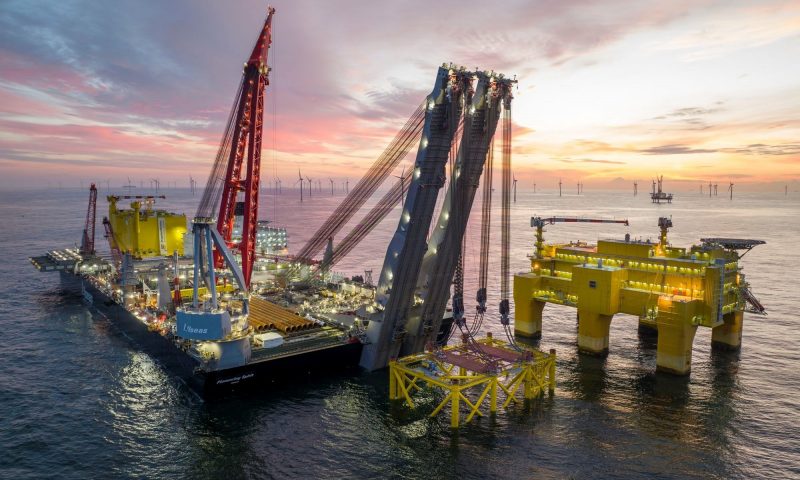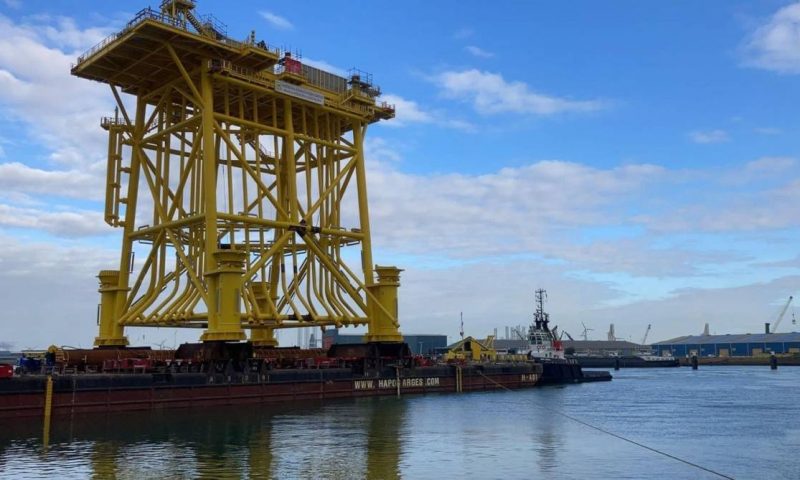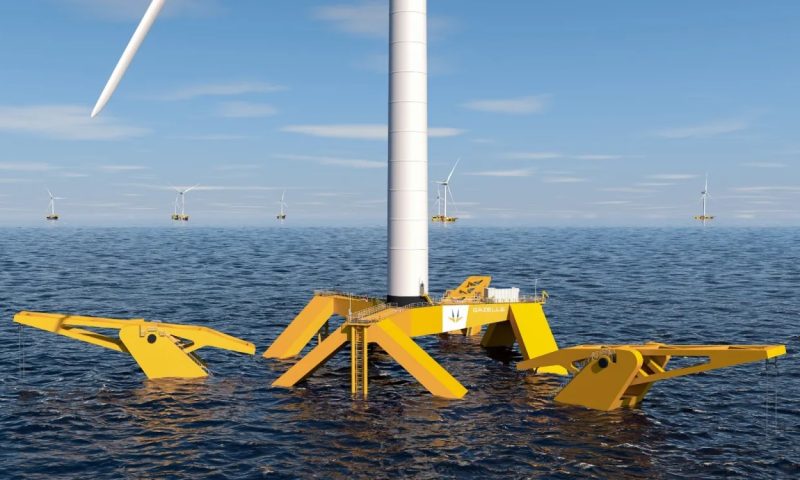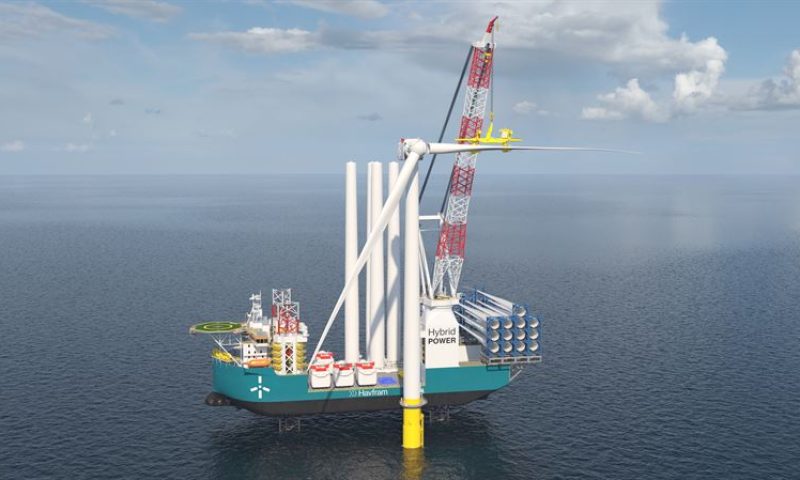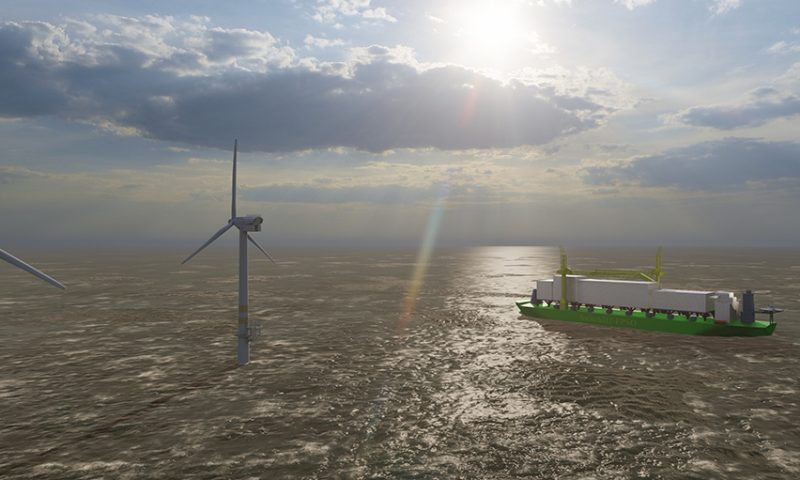
Two significant milestones for offshore grid connection Hollandse Kust (zuid); Alpha ready to land offshore wind power and Beta topside installed
Grid Readiness
TenneT received the ‘Grid Readiness’ certification from DNV GL for Hollandse Kust (zuid) Alpha on Tuesday March 22nd. This means that this offshore grid connection fully complies with the conditions set out in the so-called Offshore Wind Energy Development Framework. Marco Kuijpers, Director of Large Projects Offshore: “With the energization of the Hollandse Kust (zuid) Alpha connection, the offshore grid that TenneT is building in the North Sea is starting to take shape. Hollandse Kust (zuid) Alpha is the first connection of an offshore wind farm to the Maasvlakte and has a capacity of 700 MW. The energization of Hollandse Kust (zuid) Beta later this year will add another 700 MW from wind farms Hollandse Kust (zuid) III and IV.”
Made in Dubai
Over the past years, contractor Petrofac has been working on the fabrication of two High Voltage Alternating Current (HVAC) transformer stations – also called topsides – Alpha and Beta at the Drydocks World fabrication yard in Dubai. The Alpha topside was installed on the jacket in the North Sea, about 20 kilometers off the coast of The Hague, on Sunday December 26th 2021. Sister topside Beta left the fabrication yard in Dubai last February and sailed on a Boskalis transport vessel in little over one month to the Alexiahaven on the Maasvlakte, where it arrived last week.
Offshore company Allseas carried out the installation
In the Alexiahaven, the Beta topside was loaded from the transport vessel onto the platform installation vessel Pioneering Spirit of offshore company Allseas, which then sailed to the installation location at sea. After completion of preparatory work, Pioneering Spirit accurately positioned the Beta topside on the jacket this week.
Significant milestone in the delivery of this important energy transition project
Sami Iskander, Petrofac Group Chief Executive: “The safe installation of the Beta topside is a significant milestone in the delivery of this important energy transition project. Everyone involved should be proud of this achievement.”
Marco Kuijpers adds: “I am very pleased that the project was installed safely and I compliment Petrofac and Allseas with this. Wind energy plays a crucial role in the energy transition, also in industry, and I am proud that TenneT, together with our partners, can contribute to a sustainable future in this way.”
When the wind farm area Hollandse Kust (zuid), is fully operational in 2023, it will generate an amount of renewably energy that is equivalent to the annual consumption of more than two million households. Hollandse Kust (zuid) is the first subsidy-free wind farm area in the world.
Renewable energy from the North Sea to the high voltage grid on the Dutch mainland
The green energy generated by the wind turbines in the North Sea is collected at an offshore transformer station. The voltage is converted from 66 kV into 220 kV. The electricity is then transported to land via cables in the seabed and is landed at an electrical substation at the Maasvlakte. At this substation the voltage is converted into 380 kV. Finally, the electricity is transported to the high voltage grid via high voltage station Randstad 380 kV Zuidring.
Offshore green energy by the end of 2023
By the end of 2023 TenneT will have constructed 3,500 MW offshore grid connections for offshore wind farms in the Dutch North Sea. The first 1,400 MW has been realised with the delivery of Borssele Alpha and Beta in 2019 and 2020. It will now be the turn of Hollandse Kust (zuid) Alpha and Beta this year, followed by Hollandse Kust (noord) in 2023. TenneT is using five identical 700 MW transformer platforms for these wind farms. These platforms are located close to the wind farms and all five use the same type of 220 kV cable connection to the coast. Such standardisation enables TenneT to complete these projects more efficiently, more quickly and more economically.
Towards 2030, the Dutch and German governments will set new targets for offshore wind. The Dutch government recently announced new areas and targets with a total installed capacity of 20,7 GW around 2030. In Germany, on top of the already increased ambitions new offshore wind targets will be announced soon.

